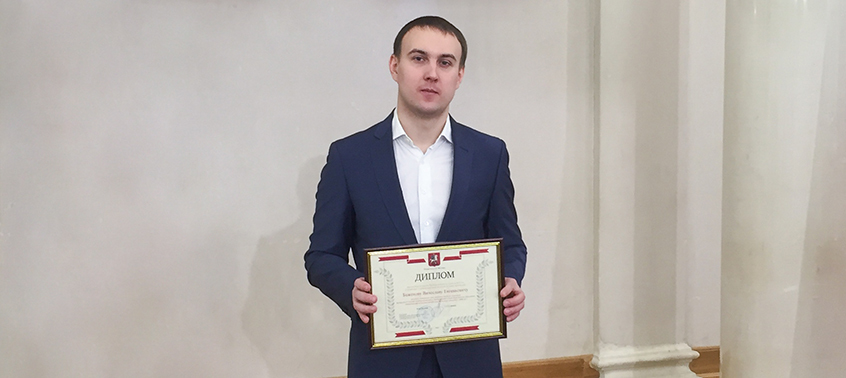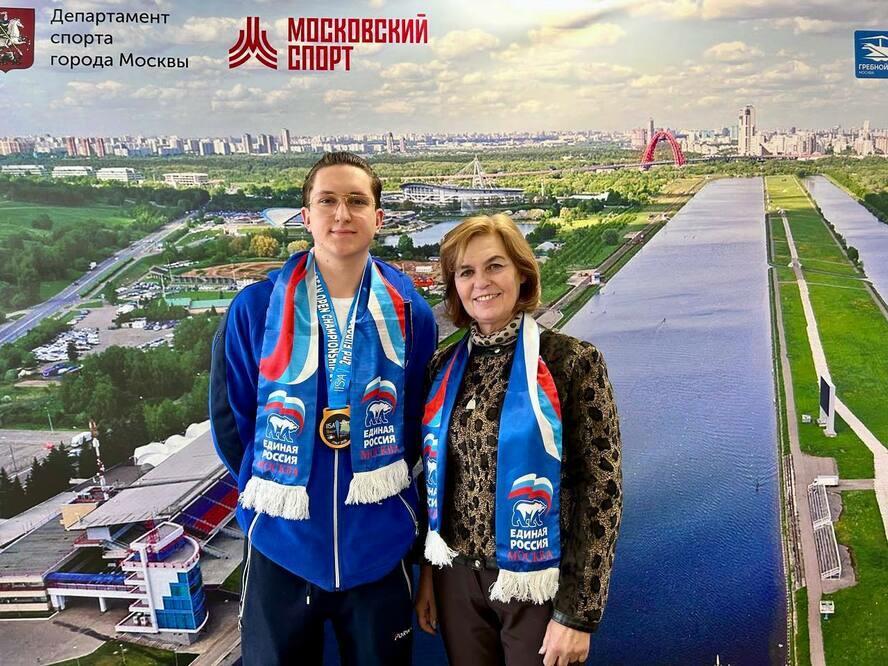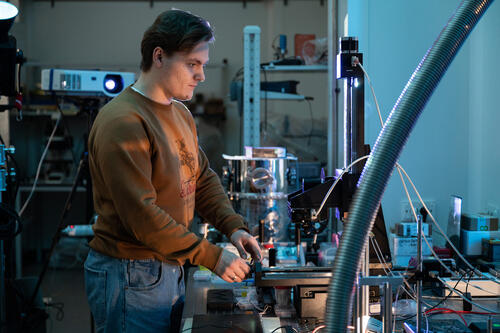
NUST MISIS young scientist Vyacheslav Bazhenov has received the Moscow Government Award for the development of a new technology for producing molded titanium alloy components by casting them in a graphite mold made by milling. The technology will be used in the Russian aircraft industry.
The research team at NUST MISIS developed a new method for production of large aircraft components. This is the first time that a pattern-free casting technology for manufacturing titanium alloy components has been proposed in the Russian aircraft industry. Graphite molds made by using milling machines with programmed numerical control will replace the currently used imported ceramic ones.
The new technology will allow Russia not only to produce molds from entirely domestic raw materials (graphite), but also to manufacture components with greater dimensional accuracy than those made by traditional investment casting. Another advantage of the pattern-free casting technology is its low cost in comparison with foreign analogs.
According to Vyacheslav Bazhenov, a Senior Research Associate of the Department of Casting Technology and Artistic Processing of Materials at NUST MISIS as well as one of the developers, “graphite is a relatively inert material in comparison with titanium alloys. Therefore, castings that were made in a graphite mold lack the defects that are typical for titanium and inevitable when traditional ceramic molds are used”.
The new technology will be used to cast titanium bushes and stabilizer links that are required for production of the most important components for the promising aircraft engine of the fifth generation — PD 14. In comparison with the majority of existing engines, its main advantage is the reduction of fuel consumption. The engine PD 14 will be installed on the Irkut MC-21 (formerly known as MS-21 — the “Airliner of the 21st Century”) and the UAC Il-214 Multi-role Transport Aircraft (MTA), that are both currently being developed, as well as on the Tupolev Tu-204, the Sukhoi Superjet 100 and the Beriev Be-200 Altair (the latter three are already being manufactured).
"The government of our country has made modernization of industries and import substitution of technologies its goal, and this includes aircraft construction. Traditionally NUST MISIS has closely cooperated with the aerospace industry: about 30 scientific research projects are now being carried out at the university at the request of the industry’s leading companies. Among them are projects on development of low corrosion and ultra-light alloys, manufacturing of devices for onboard navigation stations and components with the shape memory effect",said Alevtina Chernikova, Rector of NUST MISIS.

